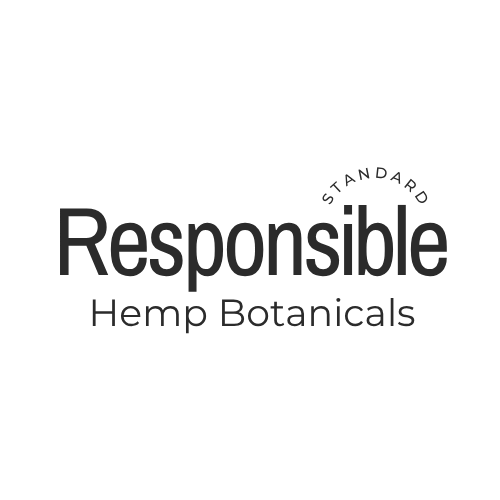💧 Hemp Beverages Are Booming—But Can Consumers Trust What’s Inside?
From sparkling CBD waters to recovery shots, hemp-infused beverages are one of the fastest-growing categories in wellness. 🌱 Consumers want functional drinks that deliver calm, focus, or recovery without the downsides of alcohol or sugar.
But with growth comes risk:
❌ Product recalls from inconsistent potency
❌ Retailer rejection without verification
❌ Erosion of consumer trust
That’s why RHB Certification matters. ✅
By verifying sourcing, potency, purity, and labeling, the RHB Standard helps hemp beverage brands differentiate, future-proof, and build long-term credibility.
📖 Dive into our new blog: Hemp Beverages on the Rise: Why Certification Matters for Infused Drinks
👉 [Insert Blog Link]
#HempCertification #RHBStandard #BeverageInnovation #FunctionalBeverages #WellnessIndustry
Hemp Beverages on the Rise: Why Certification Matters for Infused Drinks
💧 Hemp-infused beverages are booming—but without certification, brands risk recalls, lost retail opportunities, and consumer distrust. In this new blog, we explore why the RHB Standard matters for infused drinks, and how it helps brands future-proof their growth. 📖 Read more below and share your thoughts! #HempCertification #RHBStandard #BeverageInnovation
Introduction
Hemp-infused beverages are one of the fastest-growing categories in the wellness space. From sparkling CBD waters and energy drinks to cannabinoid teas and recovery shots, consumers are seeking out hemp-based drinks as alternatives to alcohol and sugary sodas. This trend reflects a broader cultural shift: people want functional beverages that provide calm, focus, or recovery benefits without the side effects of traditional stimulants or depressants. But with growth comes risk. Beverages face unique formulation, labeling, and compliance challenges, and brands that skip certification put themselves at risk of product recalls, retailer rejection, and consumer mistrust.
The Rise of Hemp Beverages
Over the past five years, hemp beverages have moved from niche shelves into mainstream distribution. Large retailers, specialty grocers, and even restaurants are offering CBD- or hemp-infused drinks. Market research suggests the global CBD beverage market will surpass billions in value within the next decade. Drivers include health-conscious consumers, the sober-curious movement, and the search for plant-based functional ingredients.
Unique Challenges in Hemp Beverages
Unlike oils or capsules, beverages present specific technical challenges. Cannabinoids are hydrophobic, meaning they do not naturally dissolve in water. Brands must rely on emulsification technologies to keep cannabinoids evenly distributed in liquid form. Without careful formulation, potency can vary from sip to sip, or sediment can form at the bottom of the container.
Beyond formulation, beverages are also governed by stricter labeling and food safety regulations. Cannabinoid-infused drinks must comply with rules around nutritional panels, serving sizes, and THC thresholds. Cross-state distribution further complicates compliance, as local laws may vary.
The Risks of Skipping Certification
When brands rush to market without certification, they open themselves up to several risks:
• Product recalls due to inconsistent potency or contamination.
• Rejection from retailers who require third-party verification.
• Regulatory action if labels misrepresent cannabinoid content or omit safety warnings.
• Loss of consumer trust, which can be difficult to rebuild once broken.
How RHB Certification Supports Beverages
The Responsible Hemp Botanicals (RHB) Standard provides a framework to address these risks. By requiring independent verification of ingredient sourcing, purity, and labeling accuracy, RHB Certification gives both retailers and consumers confidence in a product’s integrity.
Key benefits for beverage brands include:
• Verified sourcing: Hemp-derived cannabinoids are confirmed as compliant and responsibly produced.
• Potency and purity testing: Independent labs ensure cannabinoids are present in accurate amounts and free of contaminants.
• Label transparency: Claims are reviewed to prevent misleading or noncompliant statements.
• Retailer confidence: Certification makes products more attractive to distributors and retailers.
Certification as a Growth Strategy
Far from being a bureaucratic burden, certification can serve as a powerful growth strategy. Consumers increasingly expect third-party seals of approval in food, beverage, and supplement products. Certification sets a brand apart, signaling that it values safety, consistency, and transparency.
Certification also prepares brands for global expansion. Many international markets require documented compliance for novel foods and botanical products. Having the RHB seal positions hemp beverage brands to enter new regions with credibility and confidence.
Conclusion
The hemp beverage boom represents one of the most exciting opportunities in the wellness industry. But opportunity without accountability is risky. Brands that skip certification risk being left behind by stricter regulations, cautious retailers, and skeptical consumers.
The RHB Standard offers a path forward—one that combines innovation with integrity. By certifying hemp beverages through RHB, brands can build trust, secure distribution, and position themselves for long-term success.

